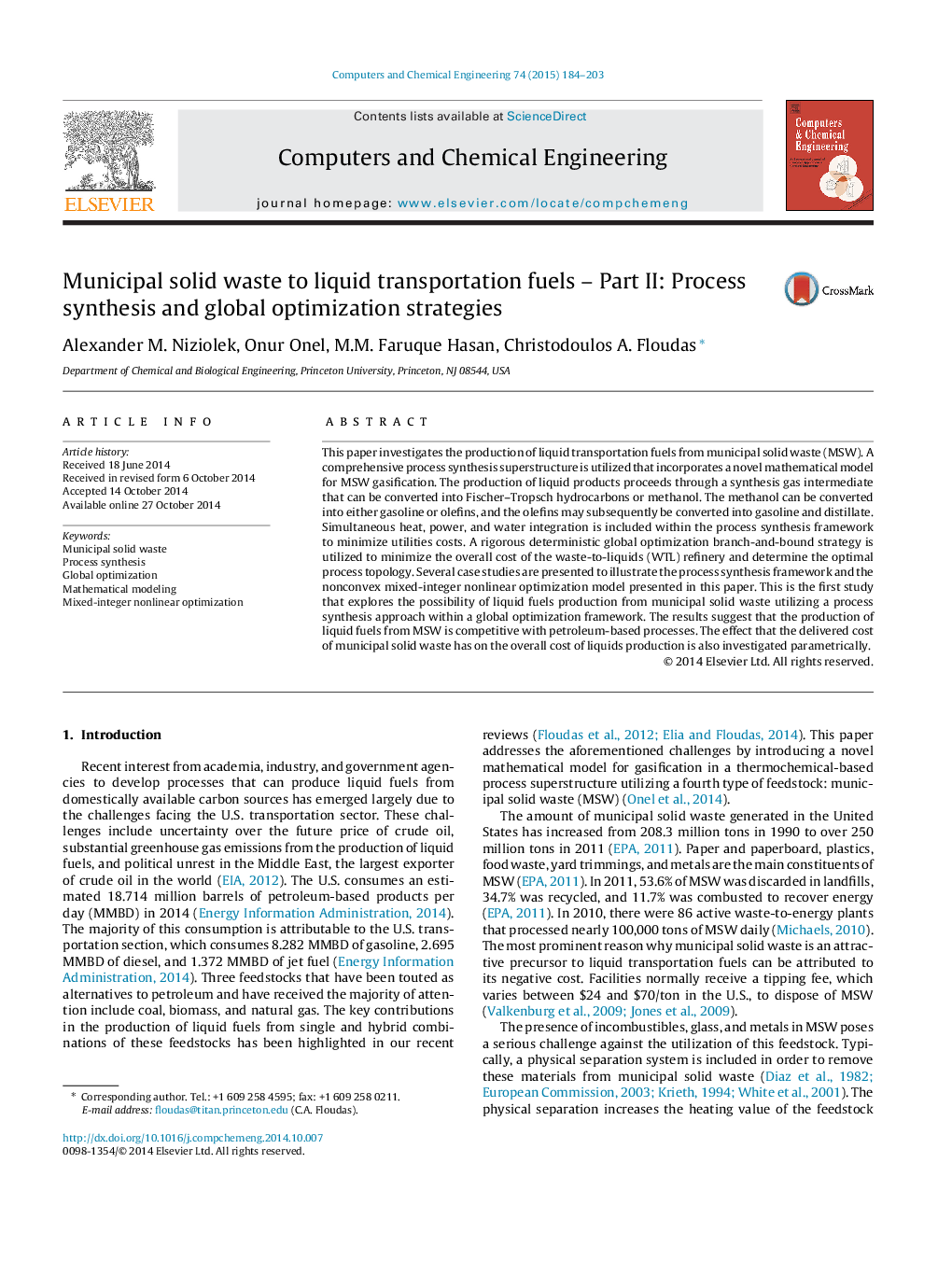| Article ID | Journal | Published Year | Pages | File Type |
|---|---|---|---|---|
| 172270 | Computers & Chemical Engineering | 2015 | 20 Pages |
•A comprehensive process synthesis superstructure is introduced for the conversion of MSW.•The optimal process topology is determined via a global optimization framework.•Twelve case studies illustrate the process synthesis framework described.•Parametric analysis is carried out to investigate the effect of the tipping fee.
This paper investigates the production of liquid transportation fuels from municipal solid waste (MSW). A comprehensive process synthesis superstructure is utilized that incorporates a novel mathematical model for MSW gasification. The production of liquid products proceeds through a synthesis gas intermediate that can be converted into Fischer–Tropsch hydrocarbons or methanol. The methanol can be converted into either gasoline or olefins, and the olefins may subsequently be converted into gasoline and distillate. Simultaneous heat, power, and water integration is included within the process synthesis framework to minimize utilities costs. A rigorous deterministic global optimization branch-and-bound strategy is utilized to minimize the overall cost of the waste-to-liquids (WTL) refinery and determine the optimal process topology. Several case studies are presented to illustrate the process synthesis framework and the nonconvex mixed-integer nonlinear optimization model presented in this paper. This is the first study that explores the possibility of liquid fuels production from municipal solid waste utilizing a process synthesis approach within a global optimization framework. The results suggest that the production of liquid fuels from MSW is competitive with petroleum-based processes. The effect that the delivered cost of municipal solid waste has on the overall cost of liquids production is also investigated parametrically.
